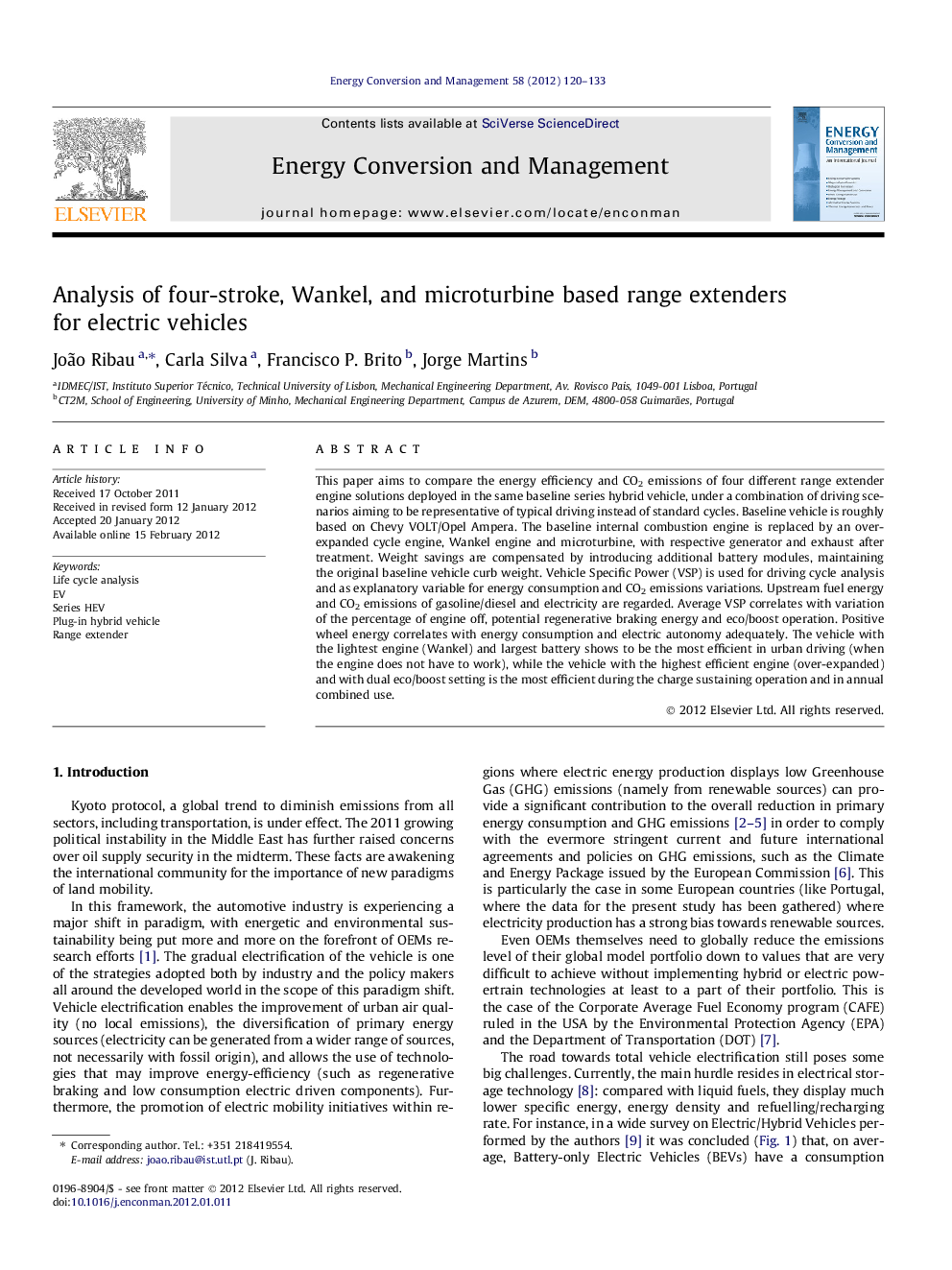| کد مقاله | کد نشریه | سال انتشار | مقاله انگلیسی | نسخه تمام متن |
|---|---|---|---|---|
| 765923 | 1462904 | 2012 | 14 صفحه PDF | دانلود رایگان |

This paper aims to compare the energy efficiency and CO2 emissions of four different range extender engine solutions deployed in the same baseline series hybrid vehicle, under a combination of driving scenarios aiming to be representative of typical driving instead of standard cycles. Baseline vehicle is roughly based on Chevy VOLT/Opel Ampera. The baseline internal combustion engine is replaced by an over-expanded cycle engine, Wankel engine and microturbine, with respective generator and exhaust after treatment. Weight savings are compensated by introducing additional battery modules, maintaining the original baseline vehicle curb weight. Vehicle Specific Power (VSP) is used for driving cycle analysis and as explanatory variable for energy consumption and CO2 emissions variations. Upstream fuel energy and CO2 emissions of gasoline/diesel and electricity are regarded. Average VSP correlates with variation of the percentage of engine off, potential regenerative braking energy and eco/boost operation. Positive wheel energy correlates with energy consumption and electric autonomy adequately. The vehicle with the lightest engine (Wankel) and largest battery shows to be the most efficient in urban driving (when the engine does not have to work), while the vehicle with the highest efficient engine (over-expanded) and with dual eco/boost setting is the most efficient during the charge sustaining operation and in annual combined use.
► VSP correlates well with the engine use, regenerative braking and boost setting.
► Wankel engine vehicle is the most efficient in urban driving.
► Over-expanded engine vehicle is the most efficient in annual combined use.
► The higher the annual urban commuting driving the lower is energy consumption.
► Over-expanded solution has 5.7% WTW less energy usage and 8.8% less CO2 emissions.
Journal: Energy Conversion and Management - Volume 58, June 2012, Pages 120–133